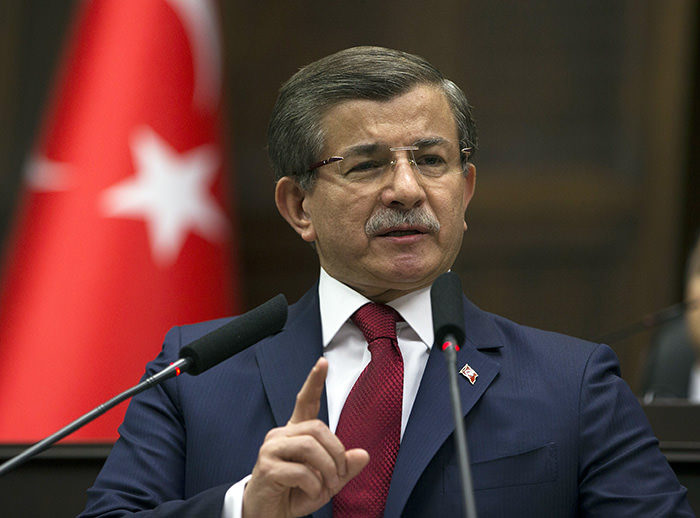
Prime Minister Ahmet Davutoğlu in a wide-ranging television interview has ruled out dialogue with the PKK organization while security units continue anti-terror operations in the southeast.
When questioned by Qatari broadcaster Al-Jazeera whether it is possible to have dialogue with terrorists, Davutoğlu said it is impossible to establish dialogue with the PKK.
"We had not established dialogue before, either. There was a reconciliation process initiated by then Prime Minister Recep Tayyip Erdoğan. ... The PKK did not fulfill the commitments to lay down arms and give up its terrorist acts," Davutoğlu said in Tuesday's interview.
Stressing that the reconciliation process could not be resumed unless the PKK ends its terrorist acts, Davutoğlu said: "Our operations will go on until all cities, villages and mountains of Turkey are cleared of terror."
The PKK, which is listed as a terrorist organization by Turkey, the U.S. and EU, resumed its 30-year armed campaign against the Turkish state in July 2015.
Rocket attacks
Davutoğlu said Ankara would continue to target DAESH in Syria as repeated rocket fire from the terrorist group land in southern regions of Turkey.
The prime minister said the Army will shell DAESH positions as long as rockets continue to strike southern Kilis province.
Since mid-January, 20 people have been killed and almost 70 others wounded by DAESH rockets fired from Syria.
"In fact, no country has fought against ISIL [DAESH] as Turkey did," said Davutoğlu. He said Turkey was against DAESH involvement on its borders and would continue to militarily support moderate opposition groups against it.
Davutoğlu said the government will never accept Bashar Assad's legitimacy in Syria "because he still continues to kill his nationals [and] forced 3 million Syrians to migrate [to Turkey]. Therefore, it is not possible to mention the legitimacy of such a government."
Syria has been locked in a vicious civil war since early 2011, when the Assad regime cracked down on pro-democracy protests. Since then, more than 250,000 people have been killed, according to U.N. figures.
Ground operation in Syria
Asked whether Turkey had considered sending ground troops to Syria, Davutoğlu said: "If needed, we will.
"If ground forces are requisite, we will. We are ready to take every kind of measure, both at home and abroad, to defend ourselves."
However, he said that Turkey would go for international consensus to fight DAESH as he said it is an issue that concerns the world.
Turning to relations with Russia, Davutoğlu said Turkey does not want to take on Russia, but rather wants improve relations.
"However, when the issue is our national security, we will take every kind of measure. Here, it is not Russia, but Turkey, that faces the DAESH threat."
Davutoğlu dismissed accusations that Turkey uses Syrian refugees as a card against the European Union, calling the claims "immoral."
"For us, the refugees are human beings. Syrians are our brothers. Regardless of Europe's attitude, we will help them. We will open our doors and hearts. Europeans know what we are doing. Therefore, we do not use the refugees as a trump card," Davutoğlu asserted.
Turkey currently has 2.7 million Syrian refugees in the country, as well as hundreds of thousands from troubled states such as Iraq and Afghanistan.
Russia
Turning to relations with Russia, Davutoğlu said Turkey did not want to take Russia on but wanted improve relations.
"However, when the issue is our national security, we will take every kind of measure. Here, it is not Russia but Turkey that faces the Daesh threat."
Davutoğlu dismissed accusations that Turkey was using Syrian refugees as a card against the European Union, calling the claims "immoral".
"For us, the refugees are human beings. Syrians are our brothers. Regardless of Europe's attitude, we will help them. We will open our doors and hearts. Europeans know what we are doing. Therefore, we do not use the refugees as a trump card," Davutoğlu added.
Turkey currently hosts 2.7 million Syrian refugees, as well as hundreds of thousands from troubled states such as Iraq and Afghanistan.
